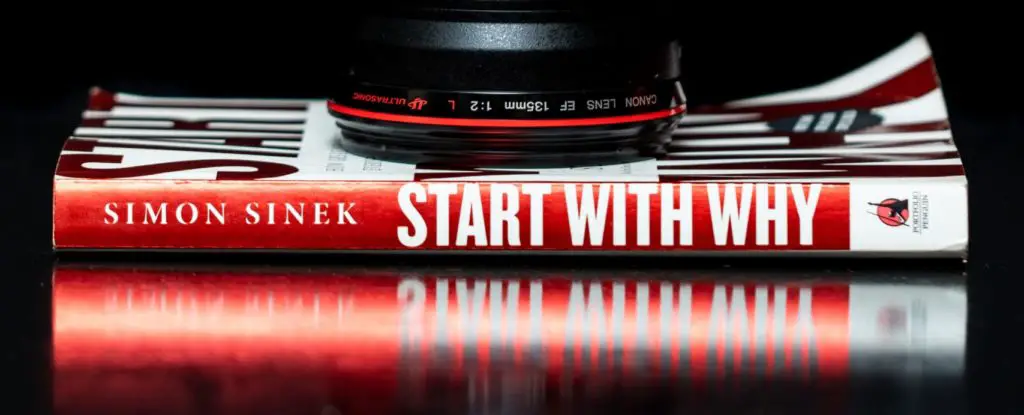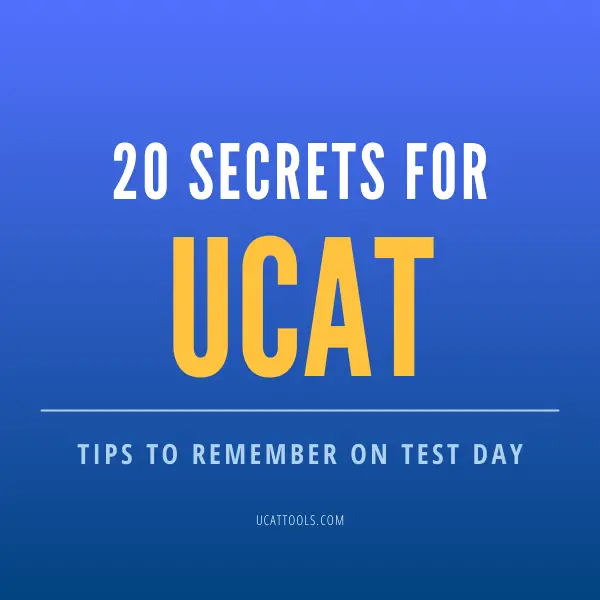I want this guide to be genuinely useful so I will provide a brief outline to what your personal statement should include, and reveal the do’s and don’ts. This is going to be long so buckle in!
Remember the more doctored (no pun intended) your statement is, the less personal, so just write what you think is best, and remove things as needed!
Don’t forget to check out some example PS archives for inspiration!
Lets get to writing!
What you may already know about your personal statement:
- needs to be 4000 characters long or 47 lines long. Whichever comes first.
- Needs to show how impressive you are!
- Needs to have some kind of work experience section!
3 simple things!
Outline:
- What are the reasons you want to study medicine?
- What have you done to get a glimpse of the medical world?
- What makes you best suited over the average person?
Let’s break each of these things down. We’ll start with the don’ts, and go onto the do’s!

What are the reasons you want to study medicine?
This is the introductory section and might be the determining factor of whether your application goes on the bad or good pile. Don’t however spend too long on this section as you can always redo it once you finish writing your statement.
DON’TS
Clichés:
We all know not to start with a cliché but we all do it anyway!! Always being interested in medicine as a child is NOT a reason to want to study medicine. It’s an observation, likely untrue.
The biology expert:
When writing this section, you are not writing as a doctor because you’re not one. You’re writing as someone with interests of BECOMING a doctor.
You won’t be successful because you already have vast biology and medical knowledge.
Don’t forget you can get on a medical degree without even studying biology at A-Level.
Admissions officers want to see a student ready to learn! A student who cares for people.
They don’t want to see the next researcher who claims they have the cure to cancer, and nothing to back it.
Prestige Hunter:
Unlikely that you would do this, but don’t mention that you would like the prestige that comes with being a doctor.
Most doctors don’t even think about this, and would tell you their day-to-day is far from prestigious.
Helpful Hero:
Don’t open your personal statement with wanting to help people.
Sounds weird but in truth, you could have pursued many other equally challenging professions such as a policeman if you wanted to be the hero type.
Definitely mention your compassionate side at some point, but there must be proof to back this.
Simply saying you are caring and want to help won’t cut it! Ask yourself why helping in the medical field is especially important to you.
Then ask yourself if you need to be a doctor to do so. If you do, you’ve found your answer!
DOs
Stand out and be unique:
The first step to standing out is making sure your personal statement is unique to medicine!
Don’t open with your A-Level grades, rather you must open with a powerful introduction to keep them reading.
Open with a little story about how doctors helped you, a family member, or a friend.
This may sound cliche so you should link it with how their discipline and ability to follow protocol systematically, informed the way you address situation in your own life.
You may also open with an experience you have had abroad or volunteering in a remote location where your work and actions changed someone’s life for the better.
You weren’t getting paid, but the sheer act of being present, and being of assistance, medically or otherwise was enough to keep you going.
The point is, whatever you choose to open with, make sure you are being truly genuine and speaking from the heart, because if not, you will likely write something YOU THINK they want to hear, instead of writing something, you truly want to write.
As a doctor, the aim is to interact with people on a human level, and help them. Get this across to admissions officers, and you have a solid opener!

What have you done to get a glimpse of the medical world?
This may be one of the most important sections in your statement.
It will either prove to the admissions officer that you REALLY want to study medicine, or you really aren’t that serious and would be taking the spot of a more deserved student.
DON’TS
Lying about experiences:
Admission officers can tell if someone is over-inflating their experiences!
Sometimes a small amount of hyperbole is needed to demonstrate how truly useful you found an experience.
You however shouldn’t claim you did things that you didn’t as you may get caught out in the interview phase!
Chances are, as a student, you didn’t get to witness any advanced procedures, shadow surgeons, or work in a hospital.
These things are unlikely and very hard to find, but luckily, most medical schools will accept experiences that are relatively easy to find.
See our guide here on how to bank a good bit of work experience before applying.
Even the best medical candidates don’t exactly enjoy their work experience, or want to do any for that matter.
They would find it easier to just lie so long as they have the grades to study medicine.
This works for a surprising number of people but the harm done when caught is certainly not worth the risk.
Listing an array of experiences:
If you’re a student, unless you have a family member practicing medicine, chances are you don’t have more than a couple of relevant work experiences to talk about.
This is enough!
Admissions officers don’t expect you to be already well versed on the inner workings of the medical system, but they do expect you to have some insights based on the work experience you have done.
Aim to have one or 2 experiences, 20 hours each. One in general healthcare such as care home, and one with qualified healthcare professionals such as a GP or someone working in a health clinic.
Our guide above will talk you through this.
The second thing about lists is they are nothing more than that, just lists.
If you just list all your work experiences, you are restricting them to things you simply did in passing.
You must reflect on how they bettered your understanding of medicine, and the inner workings of the healthcare profession.
Questions to ask yourself after a placement or shadowing:
- What did you experiences reveal to you about yourself?
- What did they teach you?
- How did they build on your already existent knowledge?
- How do they make you a suitable candidate?
- How did your involvements make you feel?
- Has it been a good experience or a Bad experience?
- Did it actually help and teach you anything?
- Did it offer anything of value?
- Would you have liked to stay there longer?
- would you have rather not done that experience?
These are a few of many questions you can answer that will give you a better understanding about your compatibility with medicine. The bottom line is to be as reflective and as honest as possible!
DOs
Be reflective and honest:
Like I said above, being reflective and honest shows transparency, and is a step in the right direction.
This direction moves away from the world of cliche and generic waffle.
Don’t list your experiences, describe how they helped you and how they made you feel. Use the questions above as a guideline of what you should be thinking about when you write this section.
Make the most of your experience:
When I was doing my work experience, I worked full time in a care home for people with alcohol related brain injury.
This is very good experience and with the right grades, can get anyone into medical school. This is however not a MUST.
I also did a few day just shadowing a number of doctors in a health clinic that had lots of outpatient visits.
If you can land this, even for a few days this is very good because you can still talk about the different aspects of medicine you got to witness.
you can also talk about the professionalism and the level of communication required of healthcare professionals.
Medical schools understand that clinics, GP’s, and hospitals have contracts with medical schools and as such will already have full capacity of students on shadowing placements so use the little bit of experience you gain to your advantage.
If you still can’t find experience in a care home (highly unlikely), or a health clinic, you can try and find other healthcare professionals to shadow such as physiotherapists, podiatrists, and opticians. The list is endless.
The whole point is to get insight into the inner working of the healthcare system to show you what you’re in for.
If you turn up to an interview having lied about your experience, you better have done some preliminary research on whichever field you claimed to have shadowed as you may get questions in this area depending on the interview style.
Aspects of medicine you find interesting:
Focusing on an aspect of medicine you have had experience in is a good way to show your knowledge of medicine while still being unique.
Which rotation of your placement did you enjoy most? I only did a few days in a health clinic but I sat in on consultations with an ENT doctor, a dermatologist, and a cancer doctor.
Decide which one was most interesting to you and write about what interested you most. Keep it unique to you, but don’t go too in depth as to show off your medical knowledge too much.
Volunteering:
Volunteering can be sometimes seen as a more valuable form of work experience, so don’t fret if you can’t find any shadowing experiences.
With volunteering, you are actively participating in an activity and doing hands on tasks. Volunteering is also usually for extended periods of time as opposed to for just a few days.
This will be considered a long-term commitment by admissions officers, and will therefore demonstrate dedication and persistence.

What makes you best suited over the average person?
This section ties in with your work experience as it is likely that the exposure to a healthcare setting has clarified exactly why you are expertly suited to a life in medicine.
If not then use your previous ambitions and experiences to explain why you have a real drive to study medicine, and what your proof and reasons are for having such a drive.
DON’Ts
Using your academics and achievements:
Don’t use this as an opportunity just to list all your achievements and stellar AS grades.
There is a time and place for that. Being academically suited to higher education isn’t what makes you best suited to do medicine as someone less academically capable might make a better doctor than you.
Medicine isn’t about being academically gifted, the only reason it’s perceived to be hard is the entry requirements are strict because of the incredibly limited places available.
Actually, on paper, it’s much easier than many bachelor degrees such as mechanical engineering and computer science, as admitted by medical admissions officers.
Your first reason as to why you are suited to studying medicine, shouldn’t be based on your academic prowess.
It however should be driven by your passion and pragmatism. Use examples from your work experiences to articulate why you will be an asset to the medical force, and are cut out for the job ahead.
At the end of the day, academics won’t help you when you are incredibly tired after a 12 hour shift, so you must be able to articulate why you are personally cut out for this course, and to practice medicine in the future.
Using the family name:
Don’t use your family name to give you street cred when answering the question of what makes you best suited to study medicine.
I thought mentioning the fact that my dad was a physician would better my chances, after all if he could pull it off, I should be able to as well, having 50% of his genetic material and all!
This is not the case, while having a physician in the family might make you better prepared for a life in medicine for various reasons, it shouldn’t be what makes you best suited.
You are applying for your own merits, and therefore YOU must be who you’re selling, not your family name.
It certainly won’t hurt your application, but it won’t be a massive boost if this is your sole reason for being best suited to studying medicine.
DOs
Capture the attention of the admissions officers and let them know why you’re well suited for medicine through your love for science and human interaction.
Doing this while trying not to sound cliché is actually fairly difficult, but this is where your originality and personality can shine through.
What do you personally bring to the table, and how will this help you become a good doctor? Like every questions in this guide, you first have to know what being a medical student and doctor entails.
Use this time to get a fresh piece of paper, and write a list of 20 things that medical students have to do. Do the same for being a doctor.
Briefly write next to each reason, what skill, ability, quality or achievement you possess that aligns you with the reason you just wrote down.
Be pragmatic, don’t make wild connections. Use this reflective time to filter all your achievements, and now instead of simply listing them, you now have quite a few reason why you are suited to medicine, and proof to back it up.
RPR is the motto here. Find a Reason, provide Proof, and Reflect!
Pragmatic and realistic about failing to get in:
To prove your pragmatism and that you have a good sense of reality, you may include your plans on the occasion your application was unsuccessful.
This is unfortunately a reality because if for every place available, 10-50 people are vying for the same spot, a lot of people will leave disappointed.
If this has happened to you, we recommend not losing hope straight away, and if this means applying the following year, and the year after that, then that’s what you should do.
We also recommend writing this in your personal statement.
Admissions officers know how competitive medicine is, and wouldn’t want to know that a candidate will just give up the first chance they got as this shows a gross lack of commitment.
You could also consider writing that you will consider shifting into another healthcare related degree such as nursing or physician associate as these courses also involve direct patient contact and the application of your knowledge to improve patient care.
Choose hobbies wisely!
You may choose to include your hobbies in this section because medicine isn’t purely scientific, and you must show that you understand this.
A massive aspect of the profession is the ability to be personable, and easily interacted with.
Your hobbies are be a good way to connect with your patients.
admissions officer understand this, which is why writing about your weekend commitments to a local football club, a jazz and rock band, or a poetry club isn’t useless!
It demonstrates your ability to have commitments outside of academia, and desire to live a more wholesome life.
Bottom line is having hobbies or non-scientific commitments is very good!
Just choose them wisely and link them to how they make you more personable in terms of having a more wholesome life outside of academia.

Concluding your statement
You don’t necessarily need a massive summary as chances are, if someone has got to the end of your statement, you’ve done a pretty good job anyways. you still have to end your statement well though as they may skip to the end.
DON’Ts
Promising what you will do if accepted
This is a tacky approach and in reality, is comparable to begging for entry! Your personal statement isn’t about making promises to the admissions tutor that you’ll be a stellar student if they let you in.
it’s about showing off your suitability and motivations in wanting to study medicine so use the opportunity appropriately.
Assume you are already accepted
Its also probably not a good idea to write something along the lines of “see you at med school!”.
You are probably unlikely to do this but once upon a time, I was tempted to do this myself! It’s very unprofessional and could hurt what was otherwise a solid statement.
Thanking them for consideration:
This isn’t a very strong ending. End with something a bit more specific to you!
DOs
Your goals:
It might be a good idea to end with your goals as a doctor. Don’t promise to be the best doctor or anything, just mention what your goals are and how the university may help achieve these goals.
You may wish to study medicine to be a part of the solution to the shortage of doctor crisis, or to take on a challenging role that forces you to be creative and work under pressure in a wide range of scenarios.
Whatever the reason, this can be outlined in a few lines.
Quotes
You may wish to include a few quotes to help end powerfully.
This can be a good idea but make sure the quote is special and unique to YOU, as opposed to being well known, general and therefore too cliché.
You’re at the final stretch so don’t mess it up with the cliché remarks now!
You’ll know the right quote when you find it because it wont be overly cheesy, cliche, and general. It will be however specific to your application, and tie in with what you have already said.
Quoting WHO statistics and CDC mission statements won’t be a terrible idea if they are things you genuinely stand by.
Tie it all together:
Take cues from the rest of your statement! Summarise your positive qualities and how they match with your passion for medicine.
Don’t just repeat things however, make it short and sweet. A few lines is enough so you don’t waste words.
If you had an interesting anecdote in the introduction, maybe finishing with a call-back to that will be a nice way to conclude the statement.
Happy Writing!
Test Your Personal Statement HERE

